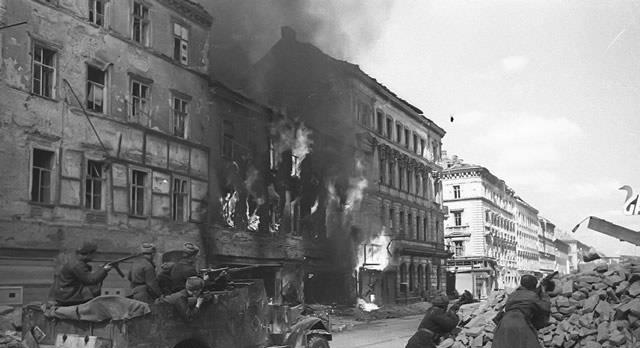The Soviet-German War was the largest, most intense, and most deadly war during World War II, and it was also a turning point in the European theater. The outcome of this war must be very clear to everyone, the Soviet Union finally defeated Germany and destroyed the German fascist regime after paying a great price. There are many reasons why the Soviet Union was able to achieve this victory, but one of the most important ones is that God helped a lot. Just as the German army launched an onslaught on moscow, the capital of the Soviet Union, the cold fell silently. The Germans, unprepared for the winter, soon fell into bitter fighting and were eventually defeated by Soviet forces near Moscow, shattering the myth of german invincibility.

The significance of the battle for Moscow was extremely significant, but the whole process was also full of suspense. Had the Germans arrived early, the Soviet Union would probably have been wiped out. So the question is, the Germans knew how terrible the Soviet winter was, why would they be late in such an important battle? In fact, the main reason for this situation is two small states located in the Balkans: Greece and Yugoslavia.
As early as the end of 1940, the German High Command had drawn up the "Barbarossa Plan" for the invasion of the Soviet Union, and planned to start a war in mid-May 1941. However, a sudden change disrupted the rhythm of the Germans.
In October 1940, Italy, an ally of Germany, launched a war to invade Greece. Italy meant "persimmons to find soft pinches" and established its hegemony in the Balkans through the conquest of Greece. However, what is unexpected is that after several months of fierce fighting, Italy not only failed to achieve its desired goals, but was defeated by the Greek army. In February 1941, Greece accepted reinforcements from the British, and a large number of British troops were able to enter the Balkans, which made the situation facing Italy even worse.
Italy invaded Greece without Prior German consent, and Germany did not support Italy's unauthorized actions. But when the Italian army was gradually defeated in the Balkans, Germany had to choose to help. For once the Greek regime, which cooperated with Britain, gained the upper hand, it would have a serious impact on Germany's invasion of the Soviet Union.
In March 1941, Germany sent troops to attack Greece. Under the fierce offensive of the German army, Greece held out for only 3 weeks before surrendering. The British forces supporting Greece withdrew from the sea after only a few battles, and the Greek campaign ended in a german victory.
Just as Germany was waging war against Greece, Yugoslavia, another country in the Balkans, took the opportunity to attack Germany. Yugoslavia, which had no intention of making enemies of Germany, agreed through a secret agreement to allow the Germans to use the Yugoslav railway lines in return, in return for the protection of Yugoslavia from the military threat of the Axis powers.
On March 27, 1941, the commander-in-chief of the Yugoslav Air Force, General Simovich, staged a coup d'état in the capital, Belgrade. The soldiers took control of wireless stations and telephone centers, overthrew the Yugoslav government, and established a new regime.
The British played a key role in the Yugoslav coup, so when the coup was successful, britain immediately expressed its willingness to provide All possible assistance to Yugoslavia. The new Yugoslav regime refused to honor the secret agreement it had signed with Germany and made it clear that it wanted to side with Britain.
The premise of the German invasion of the Soviet Union was that the rear passage must be kept safe and unimpeded. The Yugoslav default not only annoyed the Germans, but was bound to have a major impact on the passage to attack the Soviet Union, and the war inevitably took place.
In April 1941, the Germans invaded Yugoslavia. In just one week, Yugoslavia was devastated and the capital, Belgrade, was almost blown to smithereens. Britain, which the Yugoslav people had high hopes for, did not react.
The greek and Yugoslav rebellions were both inconspicuous episodes in the history of World War II, but from the perspective of the latter, these two rebellions had a significant and far-reaching impact on the fate of the subsequent Soviet-German wars and even on the entire European battlefield.
Germany originally planned to invade the Soviet Union on May 15, 1941, but due to the intervention of two uninvited guests, Greece and Yugoslavia, the invasion of the Soviet Union was forced to be adjusted to June 22. Although it was only 5 weeks apart, it didn't seem like a big problem at the time. However, when the German army encountered extremely cold weather near Moscow, the five weeks half a year ago became a key factor in determining the victory or defeat of the war. Therefore, although the defeat of Germany by the Soviet Union was inseparable from the stubborn resistance of the Soviet people, the two "cannon fodder" of Greece and Yugoslavia also played an extremely important role in it.